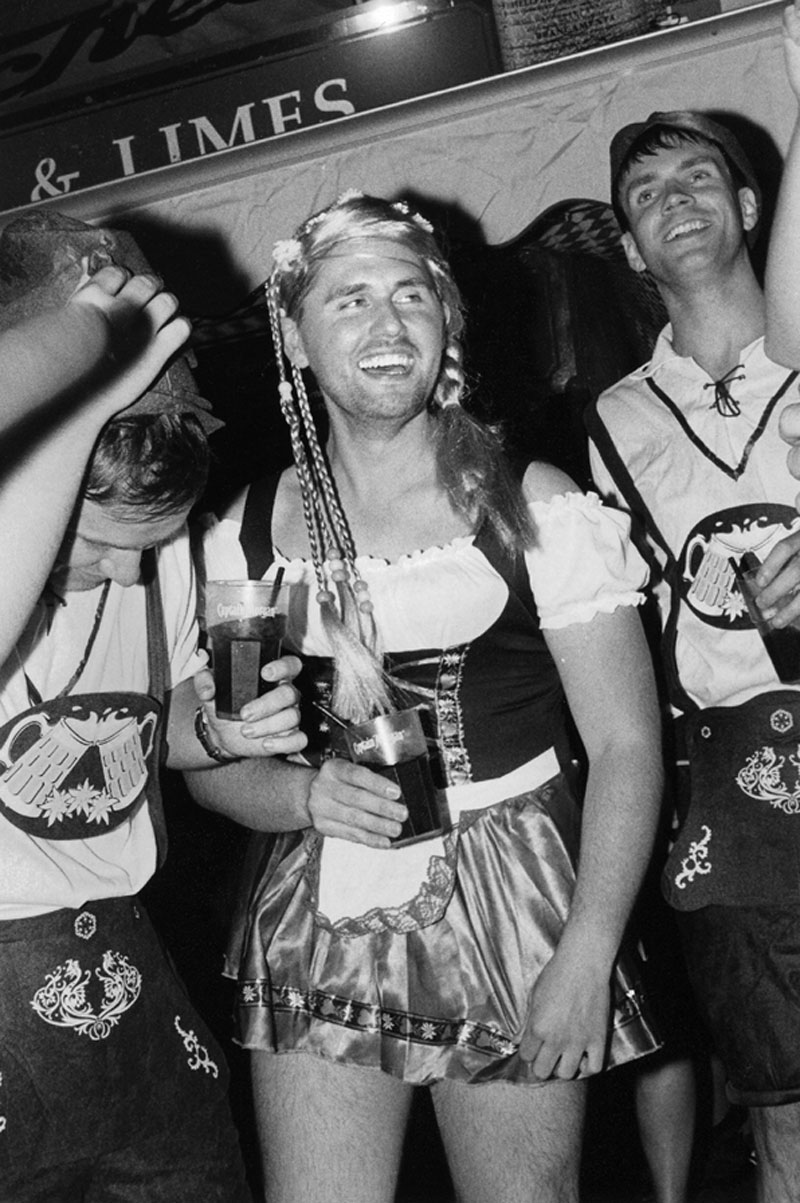“Cultural appropriation”: Is it ok for visitors to wear a dirndl at the Octoberfest?
In the run-up to this year’s Oktoberfest (22 September – 7 October) the UK’s newspaper The Guardian reported that visitors wearing sexy Alpine outfits at the Munich beer festival have been accused of tasteless cultural appropriation.
Here is the link: The Guardian
In case you have never come across the term – cultural appropriation is the killer argument used by the political correctness police, a self-appointed grassroots movement which calls for censorship from the bottom up.
In the name of oppressed minorities, it seeks to prohibit someone from a dominant culture from adopting certain elements of a smaller or indigenous culture. These can include ideas, practices or symbols. It is basically another way of calling someone a racist.
In the past cultural appropriation was a popular hit-and-kill accusation in the arts world. Thereupon shows were cancelled, artworks removed and careers destroyed. But it has since also been widely used by the commentariat in popular culture, like when non-Japanese US celebs wore kimonos. This was enough to become the target of a vicious shitstorm.
Even the TV chef Jamie Oliver recently found himself in hot water because he had the temerity to launch a product called “punchy jerk rice”. In the eyes of his critics Mr Oliver had used the word “jerk” only to drum up sales. Worse still, he had not stayed true to the authentic Caribbean recipe which is usually a marinade for meat.
Good grief. And now it is dirndls and lederhosen which seemingly need protection from cultural appropriation.
Before readers headed for the Oktoberfest lose any sleep over the issue let me say that it is quite ok to wear dirndls or lederhosen. I can say this with certainty because having been born in Munich I am allowed to self-identify as a member of that minority culture called “Bavarian”. Readers, you have my blessing.
Let me also point out that dirndl and lederhosen are actually the dress code for the Oktoberfest. You will be courting criticism if you turn up in clothes other than a dirndl or lederhosen.
This was not always the case. Until 1990 or so visitors to the Oktoberfest wore whatever they liked, says the photographer Volker Derlath. He should know because his photo series of the Oktoberfest (since 1985) must count as one of the longest-running and most astute aesthetic reflexions on the Oktoberfest’s transformation from a local beer festival to a fetish party for all. Replace latex and leather by dirndl and lederhosen, Mr Derlath says, and you get the idea.
Readers may not like to share his view, but there is equally no denying that thanks to the city’s relentless marketing efforts the Oktoberfest has become Brand Munich’s USP, attracting about 6 million people from all over the planet each year. In a fortnight they consume about 60,000 hl beer.
For Munich’s fashion retailers this means selling as many dirndls and lederhosen as they can. Of course, you can spend any amount of money on those garments. The biggest sellers however seem to be the “instant” variety. Dirndls retail for as little as USD 35 and lederhosen kits (including shirt and braces) for under USD 60. They are worn until they literally burst at the seams.
The Guardian piece is obviously meant to be taken with a pinch of salt. True, some locals and tourists may be appalled by the many sexy dirndls they see at the Oktoberfest. But The Guardian is wrong in calling the original dirndls “modest”. Throughout history dirndls have always been cut such that they draw attention to certain parts of the feminine physiology. The same applies to lederhosen and men’s calves, by the way.
My Oxford tutor once said that if women and men cannot look good in “full sub fusc” (Oxford’s academic dress including gown) there is really no hope for them. The same holds true for dirndl and lederhosen. Go and put them on when visiting the Oktoberfest and don’t worry about cultural appropriation.

